Pre-Ellen White Health Reformers:
Was Ellen White Really Ahead of Her Time?
By ,
Many Seventh-day Adventists are surprised to learn Mrs. White brought few, if any, new health reforms to the world. Other popular Christian health reformers in the United States were promoting most, if not all of her teachings on health, before she began teaching them.
Influence of Methodist Founder John Wesley

Health reform was an important part of the Methodist religion in its earlier years. The church's founder, John Wesley, associated physical well-being to spiritual health. Mrs. White, having been raised up in the Methodist church, was likely familiar with the writings and practices of Wesley. Wesley believed that health and healing were an integral part of the gospel message.
In 1746, as a young evangelist, Wesley studied medicine and began visiting the sick. He prescribed various natural remedies for their health problems. By 1753, he was testing the curative powers of electricity, which he described as the "most efficacious medicine, in nervous disorders of every kind, which has ever yet been discovered."1,2
He authored a number of books on health reform. Here are some of the health reforms he practiced and advocated in the 1700s:1,3
- Moderation in food and drink
- Warned against intemperance, indolence, over-eating, excessive passions
- Frowned upon medicines such as opium and quinine
- Advocated two hours of walking a day
- Recommended the ill should exercise in the fresh air
- Plain foods are the best, avoiding highly seasoned and rich foods
- Water is the best drink and has "a natural power for healing"
- Discouraged the use of sugar
- Abstained from tea for years believing tea, coffee, and other stimulants were "extremely hurtful"
- Stressed that cleanliness promotes health
- Advised avoiding snuff and tobacco
In addition to his many books and tracts on health, Wesley founded a system of Methodist hospitals that is one of the largest private healthcare systems in the world today.
Influence of Elder Joseph Bates
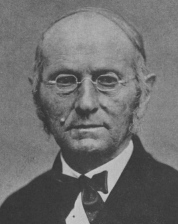
Health reform was an important subject amongst some Adventist pioneers, particularly Captain Joseph Bates. There is no doubt that Bates had a strong influence on the Whites and the development of the early SDA Church. Bates was a health reformer who quit using tobacco in 1821, and later crusaded against "tobacco and snuff boxes, and pipes." He further decried the use or trafficking of "alcoholic drinks, from brandy to cider, and beer."4 According to the White Estate: "He later quit using tea and coffee and in 1843 became a vegetarian."5 Dr. Ronald Numbers explains that Bates also stopped using "butter, cheese, greasy foods, and rich pastries."6 Thus, by 1843, Bates had already laid the foundation for the SDA "health message," even before he met Ellen and James White. Bates' health formula:
- Avoid tobacco
- Do not drink alcohol
- Do not drink tea or coffee
- Do not eat meat
- Avoid butter, cheese, rich pastries
Health Reforms of Mrs. Marie Louise Shew7
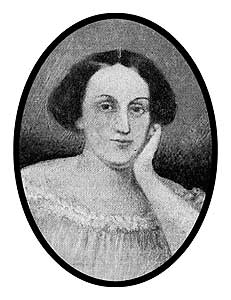
In 1844, a full 19 years before Mrs. White's first "vision" on health reform, Mrs. M.L. Shew published the third edition of her 156-page book on health reform entitled Water Cure for Ladies: a Popular Work on the Health, Diet, and Regimen of Females and Children, and the Prevention and Care of Diseases. In it she teaches the following:
- Alcohol is a deadly poison
- Drug medicines are "most pernicious"
- Get rid of salt in the diet
- Spices, such as mustard, pepper, and vinegar are "pernicious"
- Tea is "one of the most destructive poisons"
- Tobacco is a very powerful poison
- Daily bathing, exercise, and fresh air are important for good health
- Use cream instead of butter
- A vegetarian diet will promote health
- Cheese is hard for the body to digest
- Meals should be six hours apart. Two meals a day is "better for sedentary persons"
- Bread is the "staff of life." Fresh bread should not be eaten while still warm.
Fellow Prophet Joseph Smith
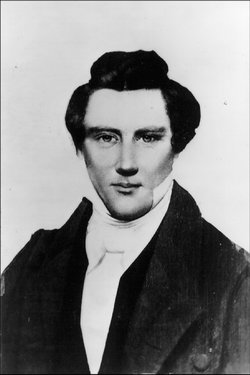
In 1833, thirty years before Ellen White's first health reform "vision", her fellow prophet Joseph Smith received his health reform vision. Smith wrote out the following health reforms:8
- Use of "wine" and "strong" alcoholic drinks is proscribed
- Tobacco is forbidden
- "Hot drinks [coffee and tea] are not for the body"
- Fruits, vegetables, and grains will bring health to the body
- Meat is allowed, but should be eaten "sparingly"
Today Mormons proclaim that Joseph Smith was "years ahead" of modern-day science. As further proof of the divine origin of Prophet Smith's revelation they point to the fact that the average Latter Day Saint outlives the average American.9 Mormon men outlive American white men by nearly ten years, and Mormon women outlive American white women by nearly six years.10
Health Reforms of Sylvester Graham
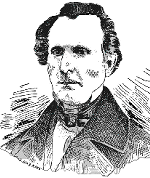
Sylvester Graham was a minister and a prominent health reformer. In 1849, Graham promoted the following reforms in a book:11
- Avoid all simulating and unnatural foods, living "entirely on the products of the vegetable kingdom and pure water"
- Butter should be used "very sparingly"
- Fresh milk and eggs were frowned upon but not proscribed
- Cheese was permitted only if mild and unaged
- Condiments and spices, such as pepper, mustard, and cinnamon, were banned as being "all highly exciting and exhausting"
- Tea and coffee, like alcohol and tobacco, poisoned the system
- Pastries, with the exception of fruit pies, were "among the most pernicious articles of human ailment"
- Sleep was preferable before midnight
- Sleep should be taken in a well-ventilated room
- A sponge bath every morning was desirable
- Clothing should not be restrictive
- "All medicine, as such, is itself an evil"
Furthermore, Graham was opposed to both marital excess and solitary vice (masturbation). Graham believed that stimulating foods aroused the sexual passions. Therefore, he concluded that one of the best ways to control sexual urges was to adopt a vegetarian diet and forsake condiments, spices, alcohol, tea, and coffee.12
Two-Meals-a-Day from Dio Lewis
In the 1850s, Dio Lewis became a nationally recognized lecturer on health reform in the United States. He taught many of the same things as Graham, but he added the reform of eating only two meals a day. The Whites were well acquainted with Dr. Lewis. In Mrs. White's biography, grandson Arthur notes that in the early 1860s:
"The Review and Herald, edited by James White and Uriah Smith, occasionally carried items on rest, fresh air, exercise, et cetera, selected from other journals or from the writings of a Dr. Dio Lewis. Quite often articles and admonitions discouraging the use of tobacco, tea, and coffee were included."13
Not only were the Whites familiar with Dr. Lewis' health writings, but in 1871, they actually visited his home in Boston and held a private discussion with him.14
Dr. William A. Alcott
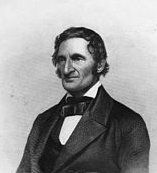
Health reformer and author William Alcott proposed many of the reforms that Ellen White later adopted:15
- Opposed tea and coffee, writing "tea is poisonous" (Mrs. White: "tea is poisonous" 2T 64)
- Opposed tight lacing on women's dresses
- Christians should not attend the theater
- Warned of marital excess
- Opposed eating between meals
- Frowned on condiments
- Extolled the benefits of "proper ventilation"
- Warned to avoid cosmetics which are "poisonous"
- Encouraged frequent bathing
- Cautioned using butter, milk, cheese, and meat
- Sleep before midnight is better
- Advocated a vegetarian diet
Millerite Reformer Larkin Coles
Larkin B. Coles was less known than Graham or Lewis. However, he is of special interest to Adventists because he was a Millerite preacher-physician. Before his death in 1856, he authored two books on health. In his books he advocated fresh air, exercise, a vegetarian diet, non-use of stimulants, reform in dress, sexual purity, and drugless medicine. Mrs. White obtained a copy of Cole's book on health, and a large number of her health writings appear strikingly similar to Coles' writings. She rarely disagrees with Coles on any health subject, and nearly every health reform that Coles proposed in his book, later showed up in her books.
Coles not only warned against meat eating because it increased the animal propensities, but he also discussed the connection between meat-eating and disease. He was noteworthy for sounding a warning (which others health reformers had already voiced) that there was a relationship between tobacco use and carcinomas.16
Florence Nightingale (1820-1910)17

Florence Nightingale was an English health reformer who wrote over two hundred books, articles, and reports. Like Sister White, she had strong spiritual convictions and received a call from God at the age of 17. Like Mrs. White, she believed disease to be caused by a violation of God's natural laws of health. Nightingale advocated many reforms that Ellen White later advocated:
- Good ventilation was very important, especially at night. She believed that the air inside a house or building needed to be as pure as that outside. She believed sewage, decay, and uncleanliness filled the room with "effluvia."
- Sunlight is essential to health and recovery.
- Bathing frequently is important in order to keep the pores of the skin free from perspiration and all obstructing excretions.
- She recommended frequent airing of the mattress.
- She advocated not only personal cleanliness but cleanliness in the home.
Ellen White and Health Reform
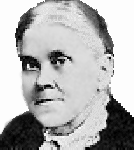
Ellen White was a "late-comer" to health reform. She did not receive her first "vision" on health reform until 1863, a full 30 years after Prophet Joseph Smith's vision. While Mrs. White was still feasting on pork in the early 1850s, the health reform movement was in full swing in America. Health and temperance lecturers traveled throughout the country, speaking in churches and halls, promoting the vegetarian diet, and warning against alcohol, tobacco, and corsets. A full decade before Mrs. White received her "vision" on health reform, all the major tenets of her health teachings were being taught by nationally-known non-Adventist Christian health crusaders.
Her First Attempt at Health Reform
Mrs. White's first attempt at health reform was to write a book called Appeal to Mothers, published in 1864. Like Sylvester Graham's efforts two decades earlier, Mrs. White warned her church members about the terrible health dangers of masturbation. On the first page she warns of the astonishing numbers of deaths caused by masturbation:
"Have you observed the astonishing mortality among the youth?"18
According to Mrs. White, not only does masturbation cause death and a wide range of physical ailments, it also causes mental health problems:
"The mind is often utterly ruined, and insanity takes place."19
Needless to say, Appeal to Mothers is no longer available in print. Like many of her other writings and visions that were proven to be false, this book was withdrawn from publication.
Later Attempts
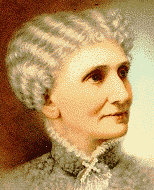
While she never achieved the fame in the health reform arena attained by fellow prophet Mary Baker Eddy—whose first book Science and Health, published in 1875, sold over 10 million copies—Mrs. White's later efforts proved more successful. With the assistance of her staff of professional writers and editors, she was able to produce a much better health reform book which is still available today: Ministry of Healing.
Perhaps Mrs. White had the opportunity to read Mrs. Eddy's book:
| Mary Baker Eddy, Science and Health, 1875 | Ellen G. White |
|---|---|
| Prayer cannot change the Science of being, but it tends to bring us into harmony with it. (p. 1) | Prayer is not to work any change in God; it is to bring us into harmony with God. (Christ's Object Lessons, p. 143, 1900) |
| ...will mould and fashion us anew, until we awake in His likeness. (p. 4) | Then He will mould and fashion us after the divine likeness... (Signs of the Times, Mar. 11, 1903) |
| Their imperfections and impurity felt the ever-present rebuke of his perfection and purity. (p. 52) | To all things untrue and base His very presence was a rebuke. In the light of His purity, men saw themselves unclean... (Education, p. 79, 1903) |
See also
